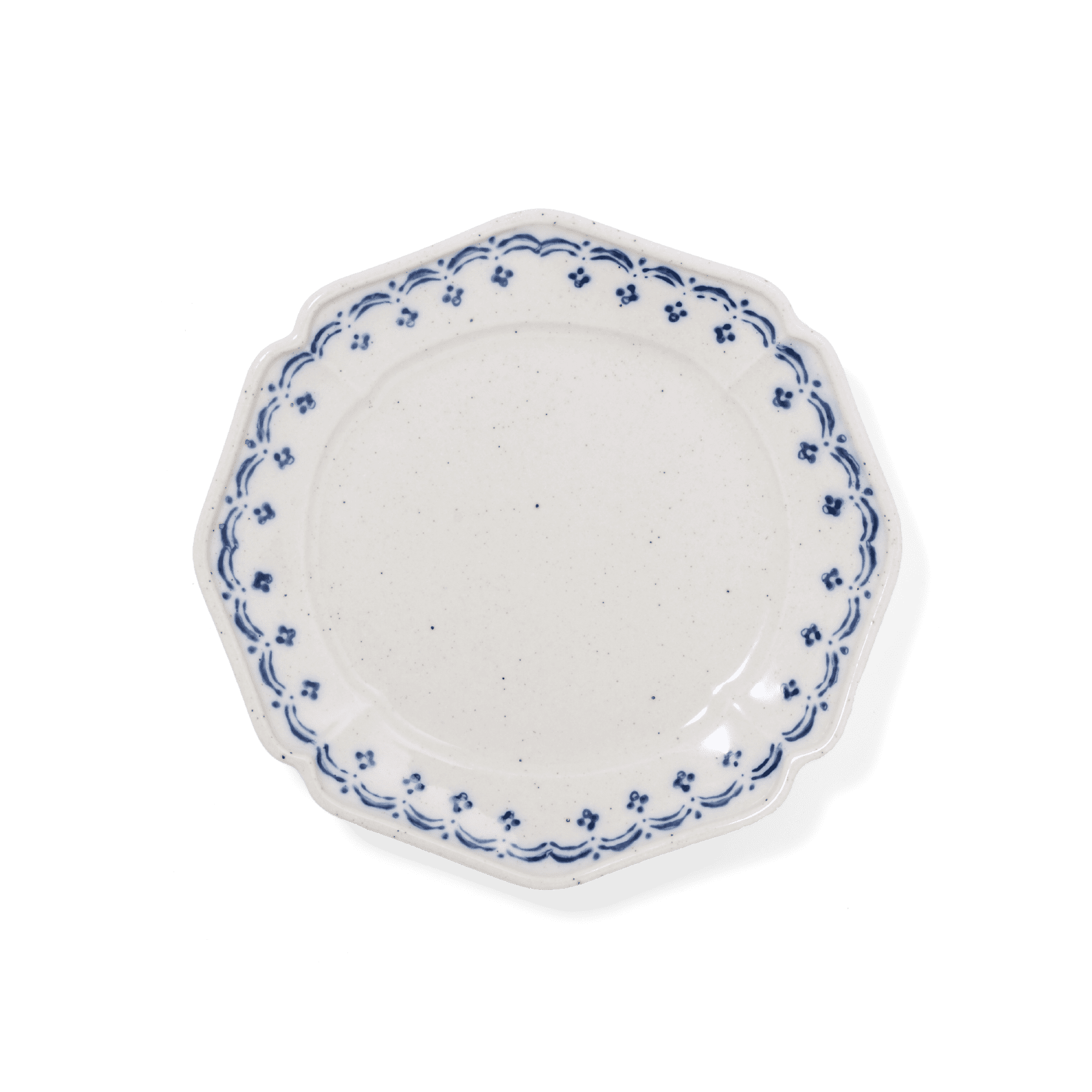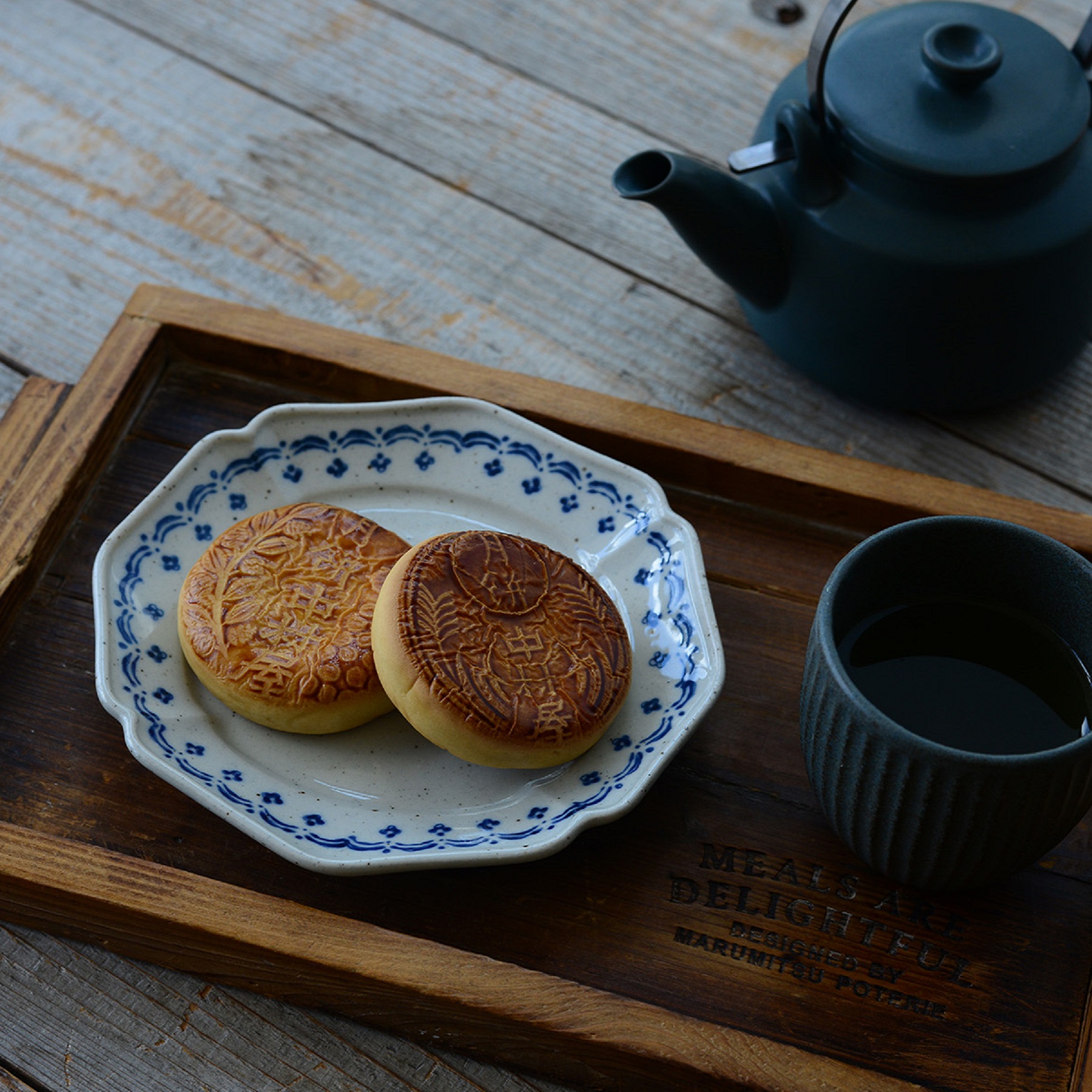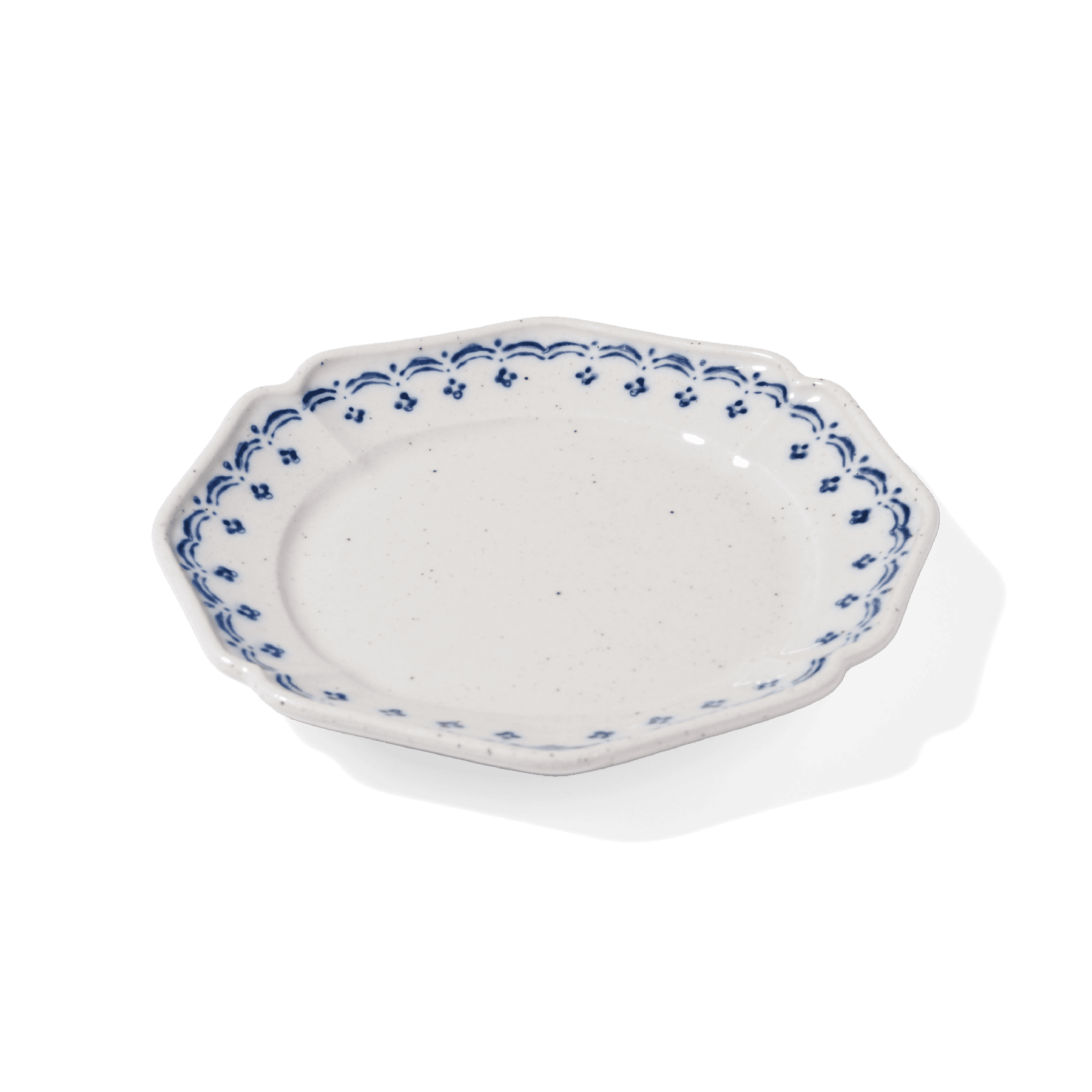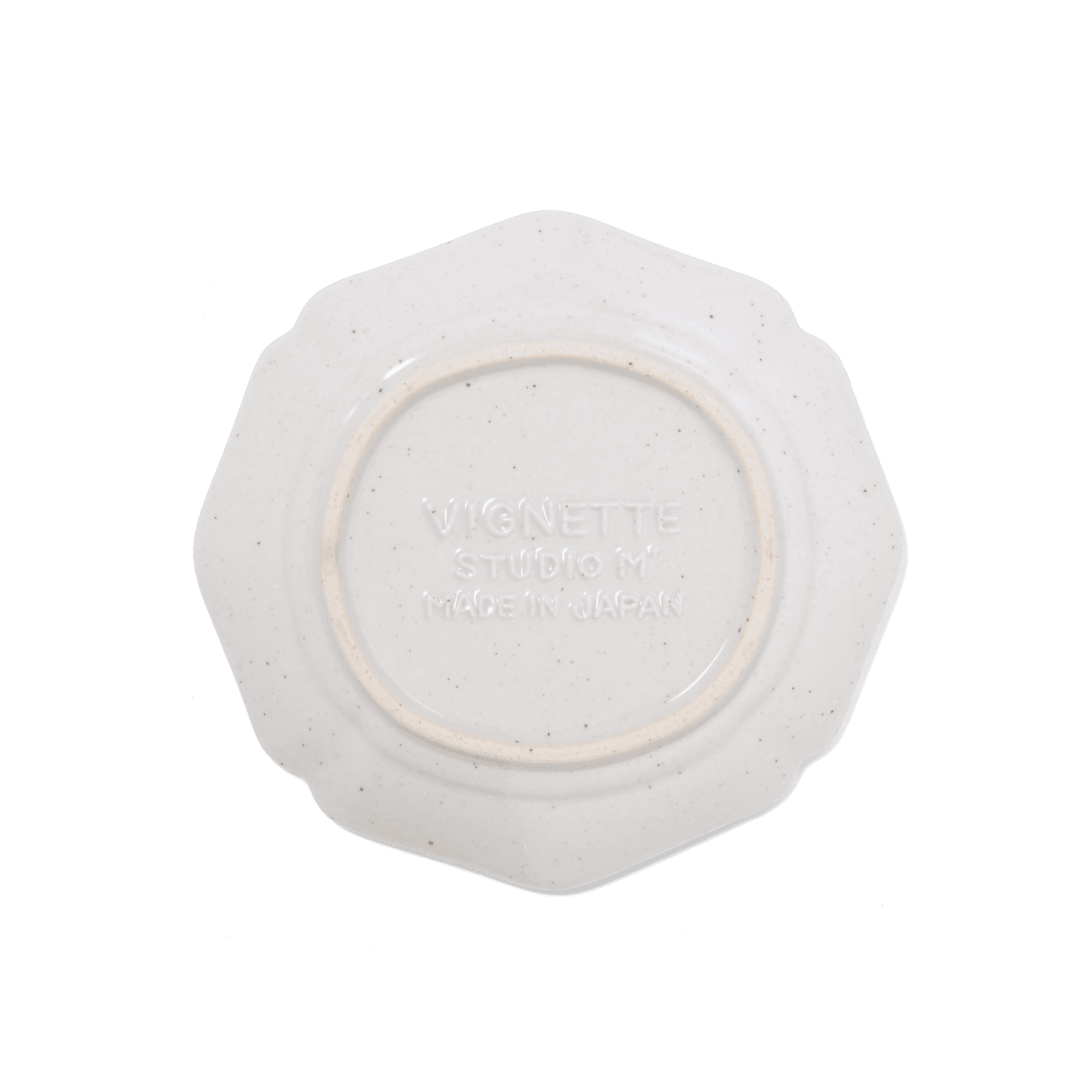Vignette 15cm plate blue
Description
The series with simple rustic print. Blurred or misalignment of prints enhances its rustic charms. Casual, easy and versatile series for everyday use. The 15 cm plate can be used not only as a side plate but also for serving side dishes or for desserts or snacks. Perfect size to own extra pieces for many purposes.
・Because the patterns are applied by hand, prints may be blurred, warped or may have gaps. Please enjoy them as charm of handmade.
Features
Color Shade Variations
Each piece has individual color shade variations. Affected by glazes and natural firing conditions such as changes in temperature, humidity and other climate elements and also how to receive the fire in the kiln chamber, each piece has own expression. It is really difficult to make the completed ware exactly same in color by firing and glazing even when the same materials are used. 100 pieces show 100 kinds of expressions, as it were.
Glaze or Slip Drips
The glaze or slip may look like dripping. There is unevenness of a glaze or slip when they are applied to ware by hand. There also appear glaze drips or slip drips, which are caused by the glaze or slip flows during firing.
Pinholes
Pinholes may be seen clearly on the surface. Pottery (earthenware) is mainly made from earth, and green ware contains a lot of air while biscuit firing. While glazed firing, this air inside the biscuit ware becomes air bubbles, which remain and look like small holes on the surface of the glazed part. Those small holes are called pinholes.
Crazing (Chaps)
Crazing (having chaps) may appear clearly on the glazed part. The “direct” crazing means having chaps originally. The “aging” crazing means having chaps over time as you use the tableware item. There is a difference between the shrinkage rate of the glaze and that of the clay, so crazing occurs. Note that those cracks do not come from the damage of tableware items. They might appear just before use, but it is no problem in terms of use. They appear on the surface of pottery (earthenware) and semi-porcelain.
Iron in Powder
Iron in powder may be seen clearly on the surface. Pottery (earthenware) is made from earth, which contains iron. After firing green ware, iron appears on the surface in the form of black dots. Red or black earthen clay contains much more iron, and as a result, not a little iron in powder may appear on the surface of tableware items made from this type of clay.
Light Pink Marks
Light pink marks may appear on the surface of tableware items. They appear when a component of the base clay becomes oxidized and then develops a color while fired. Interestingly, each tableware item has the “one of a kind” pattern of light pink marks because they appear depending on a variety of mixed conditions such as components of the base clay, glazes and firing settings, etc. You can enjoy the unique distinctiveness that adds to your own tableware item.
Warping
Warping in shape may be clearly seen. Ceramic ware is made out of clay, so even after formed, green ware is relatively soft and wobbly. Therefore, when it is made dry, it is affected by natural conditions such as temperature and humidity, so each piece may look different in size and shape and perhaps warping in shape may appear.
Microwave Safe
A microwave oven heats or cooks food very quickly using short electromagnetic waves, namely, microwaves. In most cases, the microwaves heat the water content of the food. However, in some cases, the microwaves concentrate on the carbonized (burnt) parts of the food, causing the temperature to rise higher than the other parts. For example, the microwaves concentrated on the carbonized (burnt) parts of stir-fried vegetables can create a large temperature difference in /on the tableware item, which may cause breakage. In addition to water content, oil content is also heated. The oil has a higher boiling point than the water, so it heats up at a higher temperature, creating a very large temperature difference between the parts that contain oil and the parts that do not, which can cause breakage.
・Never soak hot tableware in water or place it on the cold kitchen counter. Avoid rapidly heating frozen foods or putting [the cold tableware just taken out of the refrigerator] in the microwave. A rapid change in temperature will lead to “crazing” (chaps) or breakage.
※The products with gold or silver paintings, or applied with particular glazes are not microwave safe. We put a “Do Not Microwave” sticker on those items, so please confirm it.
※Accessories etc., made of other materials are excluded from microwave safe items.
Not Oven Safe
Dishwasher Safe
As for the products without the "Not Dishwasher Safe" stickers, please make sure to use them keeping the below matters in mind.
※If tableware items collide each other in the dishwasher, they will get broken.
※Most ceramic items absorb water. Even if the surface looks dry, there may still be some water in the tableware, which may cause your tableware to get moldy or smelly. So, please take it out of the dishwasher immediately after use, and dry thoroughly in a place where it can be exposed to the outside air.
made in JAPAN










